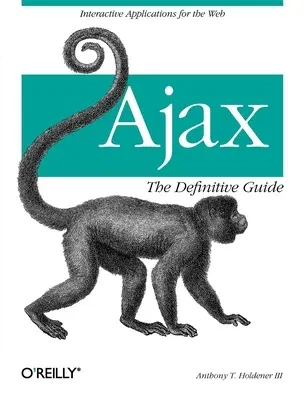Is Ajax a new technology, or the same old stuff web developers have been
using for years? Both, actually. This book demonstrates not only how
tried-and-true web standards make Ajax possible, but how these older
technologies allow you to give sites a decidedly modern Web 2.0 feel.
Ajax: The Definitive Guide explains how to use standards like
JavaScript, XML, CSS, and XHTML, along with the XMLHttpRequest object,
to build browser-based web applications that function like desktop
programs. You get a complete background on what goes into today's web
sites and applications, and learn to leverage these tools along with
Ajax for advanced browser searching, web services, mashups, and more.
You discover how to turn a web browser and web site into a true
application, and why developing with Ajax is faster, easier and
cheaper.
The book also explains:
- How to connect server-side backend components to user interfaces in
the browser
- Loading and manipulating XML documents, and how to replace XML with
JSON
- Manipulating the Document Object Model (DOM)
- Designing Ajax interfaces for usability, functionality, visualization,
and accessibility
- Site navigation layout, including issues with Ajax and the browser's
back button
- Adding life to tables & lists, navigation boxes and windows
- Animation creation, interactive forms, and data validation
- Search, web services and mash-ups
- Applying Ajax to business communications, and creating Internet games
without plug-ins
- The advantages of modular coding, ways to optimize Ajax applications,
and more
This book also provides references to XML and XSLT, popular JavaScript
Frameworks, Libraries, and Toolkits, and various Web Service APIs. By
offering web developers a much broader set of tools and options, Ajax
gives developers a new way to create content on the Web, while throwing
off the constraints of the past. Ajax: The Definitive Guide describes
the contents of this unique toolbox in exhaustive detail, and explains
how to get the most out of it.

